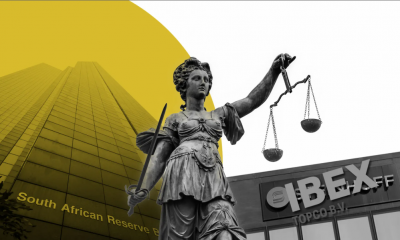411
High Court Ruling Shakes Up South Africa’s Outdated Crypto Regulations

In a major legal development, the Pretoria High Court has ruled that South Africa’s decades-old exchange control regulations are not equipped to handle the complexities of cryptocurrency. The judgment marks a significant turning point for how digital assets are viewed under South African law — and delivers a strong rebuke to the South African Reserve Bank (SARB) for its sluggish response to the evolving financial landscape.
The ruling came on 15 May 2025 in a case involving Standard Bank and a client company accused of fraud. The bank had sought to liquidate the company to recover over R41 million. However, the SARB’s Financial Surveillance Department (FinSurv) had already seized the company’s assets, citing violations of exchange control regulations due to offshore crypto transactions.
But Judge Mandlenkosi Motha wasn’t convinced.
Cryptocurrency ≠ Currency, Says the Court
Judge Motha stated that cryptocurrency does not meet the definition of “money” or “foreign currency” under the current exchange control framework. He highlighted that crypto assets like Bitcoin are not easily categorized within traditional financial definitions, questioning how such assets could be declared, deposited, or even geographically located.
“Cryptocurrency is not money,” Motha wrote. “Trying to interpret it as such under our outdated regulations is both strained and impractical.”
He further explained that digital assets are essentially code on a distributed ledger, existing everywhere and nowhere at once — making traditional exchange controls ineffective.
A Legal System Stuck in the Past
The court’s decision also put South Africa’s current legal infrastructure under scrutiny. Motha pointed out that the country’s exchange control laws date back to 1961, born out of apartheid-era attempts to stop capital flight after the Sharpeville Massacre. Despite a few updates, the core of these laws has remained unchanged for more than 60 years.
“Cryptocurrency has been around for over 15 years,” Motha noted. “The SARB can no longer say it’s been caught off guard.”
He called on lawmakers to follow the example of how intellectual property was once woven into the exchange control framework — and urged a similarly thoughtful approach to regulating crypto.
Blow to SARB and FinSurv
The decision is a serious blow to FinSurv, which has taken a hardline stance in recent years. In 2021, it pushed local banks to clamp down on customers using cards to buy crypto on overseas exchanges and warned that transferring crypto abroad was a criminal offence.
Despite multiple inquiries, FinSurv has failed to clarify the legal basis of these restrictions, simply replying “yes” when asked if it considered the broader consequences on businesses and innovation.
The court’s ruling now casts doubt over much of this regulatory heavy-handedness.
A Wake-Up Call for Lawmakers
While this judgment doesn’t create new laws, it strongly signals that South Africa’s approach to crypto regulation is out of step with global innovation and local economic opportunity. Industry players like Luno, VALR, and AltCoinTrader have long warned that unclear or outdated rules stifle growth and global competitiveness.
As countries around the world rethink crypto regulation — and some, like El Salvador, even reverse earlier decisions — South Africa may finally be forced to confront its own legal inertia.
This ruling sets the stage for a broader conversation about digital finance and governance in South Africa. Whether the SARB and lawmakers will respond with urgency remains to be seen, but one thing is clear: the courts are no longer willing to accept excuses.
{Source: My Broad Band}
Follow Joburg ETC on Facebook, Twitter , TikTok and Instagram
For more News in Johannesburg, visit joburgetc.com



















